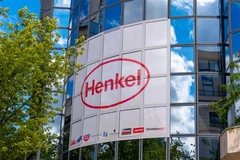Absolut Vodka and Ardagh to leverage hydrogen-fired glass furnaces as CO2 substitute

09 Nov 2022 --- Absolut Vodka has signed a contract with Ardagh Group to source glass from its upcoming partly hydrogen energy-fired glass furnace at Ardagh’s Limmared facility in Sweden. Once operational, it will reduce the CO2 emissions of Absolut’s glass bottles.
The hydrogen initiative is regarded “as one of many important steps we are taking on our journey to decarbonization,” an Ardagh spokesperson tells PackagingInsights, and a prerequisite for the spirits brand to reach its goal of becoming CO2-neutral by 2030.
While Innova Market Insights data show that 56.7% of global consumers prefer their alcohol packaged in bottles and a figure less than half this (22.84%) prefers it in glass, Stéphanie Durroux, chief executive of The Absolut Company, says “the glass manufacturing industry is in a transformative journey, and the world can’t wait for the perfect solution.”

By investing in hydrogen energy-powered glass furnace technology, Bo Nilsson, managing director at Ardagh Glass in Limmared, asserts “we are embarking on a journey to reduce the carbon footprint of our glass packaging.”
 Durroux says the glass manufacturing industry is on a transformative journey, and the world can’t wait for the “perfect solution.“There are challenges with such innovation, but we are committed to being an early mover in future-proofing our glass manufacturing operations worldwide.”
Durroux says the glass manufacturing industry is on a transformative journey, and the world can’t wait for the “perfect solution.“There are challenges with such innovation, but we are committed to being an early mover in future-proofing our glass manufacturing operations worldwide.”
Renewable sourced success
Ardagh’s glass manufacturing facility in Sweden has been a partner with Absolut for 40 years and currently powers its furnaces with a combination of natural gas and electricity.
Ardagh will launch a pilot program in Limmared in the second half of 2023 in which all of Absolut’s bottles across its portfolio will be manufactured by substituting 20% of its natural gas for green hydrogen.
The hydrogen will be created on-site at Ardagh using renewable energy, and according to the brand, this entails a shift in the continuous production of Absolut bottles for all markets worldwide.
“Our industry needs to be less reliant on fossil fuels and transition at pace to using more green energy,” Nilsson says.
An industry-wide shift
The spirits brand asserts this energy change will have a knock-on effect on the glass industry as there are already many initiatives focussing on reducing the climate impact of glass production.
Absolut Vodka’s carbon footprint from glass would be reduced by 20% if hydrogen was used. It follows earlier collaborative initiatives to minimize carbon emissions, such as glass light-weighting, increased use of electricity in the furnace currently used and a large increase in recycled flint glass – now at 53% with the goal of going higher.
According to Absolut Vodka, it owns one of the most energy-efficient distilleries in the world. It emits 98% fewer pollutants than the average distillery, resulting in a surplus of emission rights. These will be used to invest in green transformation.
“Given we’ve been investing in our own production for decades, decreasing our emissions and increasing energy efficiency, we’re now in a position where we also can focus on the parts of our value chain that are outside of our own scope,” Durroux says.
“A bold and innovative approach is needed to accelerate radical change that will help solve the significant sustainability challenges that all glassmakers and buyers of glass face,” she concludes.
By Mieke Meintjes











